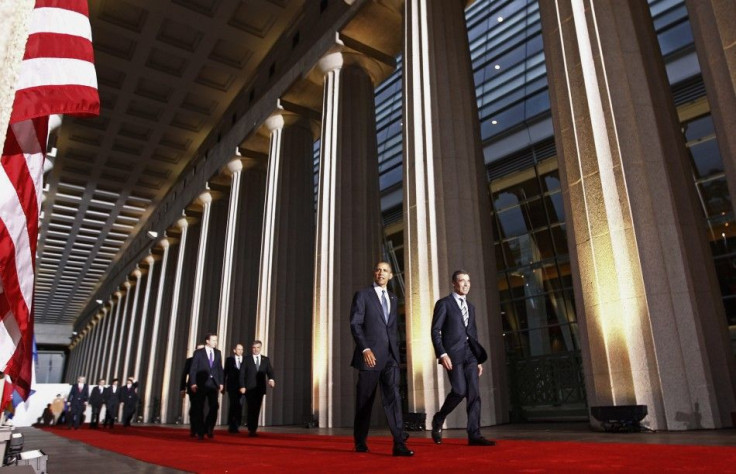Obama Vows Continued NATO Role In Afghanistan

NATO will continue to work to bolster security in Afghanistan even as the international community gradually cedes control of combat operations, President Barack Obama said on Monday morning.
At a Chicago conference devoted to hashing out NATO's future role in Afghanistan, Obama said the assembled world leaders would set a timeline for Afghan forces to take over as the International Security Assistance Force prepares to halt combat operations by the end of 2013. But he also affirmed a strategic partnership agreement that commits U.S. and NATO troops to advising and training Afghan forces.
The agreement ensures that as Afghans stand up they will not stand alone, Obama said.
Praises Afghanistan Defense's Progress
Noting that the region and the world have a profound interest in an Afghanistan that is stable, that is secure and that is not a haven for terrorism, Obama praised Afghanistan's strides toward assuming control of its security. He pointed to President Hamid Karzai's recent pledge that a third area of the country would move toward giving Afghan forces a lead role, extending the primacy of Afghan forces to about three-quarters of the country.
Our forces broke the Taliban's momentum, more Afghans are reclaiming their communities, Afghan security forces have grown stronger, Obama said.
President Obama is engaging in a complex balancing act as he seeks to extricate American forces from a deeply unpopular war without abandoning hard-won security gains. He has begun withdrawing the nearly 30,000 additional troops he ordered into Afghanistan at the start of his presidency and has set a goal of a full draw-down by the end of 2014.
Afghan security forces have been gradually taking over operations that had been directed by international troops, including detention facilities and the nighttime raids that for many Afghans became an infuriating symbol of an occupying power.
--
© Copyright IBTimes 2024. All rights reserved.











